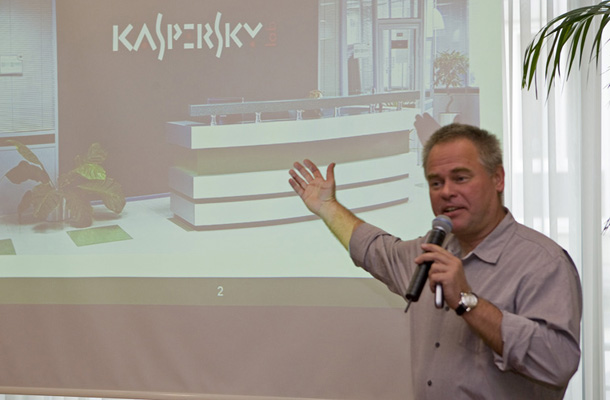Kaspersky: Mobile phone security rising in importance

But don't expect antivirus for your vacuum cleaner any time soon...
Mobile phone security could soon be a bigger worry for consumers than viruses on their PCs, according to the head of antivirus company Kaspersky Lab.
The current virus threat to mobile phones has been described as a "a raindrop in a thunderstorm" when compared with the level of risk encountered by desktop PCs. But as mobile phones grow in sophistication, securing these devices will become more important, according to Eugene Kaspersky, CEO of the Russian security company that bears his name.
"In future, you will have a mobile phone, screen and keyboard. When you get to the office, you put your mobile phone on the table and wireless connects to the screen and keyboard and that is your computer. Five to 10 years from now, mobile security will replace computer security for home users."

Kaspersky Lab says securing mobile phones will become more of an issue as these devices grow in sophistication
Photo: Steve Ranger/silicon.com
Many standard consumer gadgets - from TVs to fridges - now come with significant processing power, leading many to fear that accessing these devices could be a new avenue of opportunity for virus writers.
But Kaspersky remains unconvinced of the threat: "Some years ago there was a proof-of-concept virus for the iPod, but what is it possible to steal from an iPod? If fridges and microwaves ever have malware then our test labs will look like a supermarket. What can cybercriminals steal from a vacuum cleaner? Dust?"
Kaspersky said more than 300 million people are protected by its products and technologies, and it has 200,000 business customers. The company is looking for growth in the corporate market. Last year, the firm's corporate business grew more than its consumer business. It calculates that IT security spending is about 10 per cent of IT budgets - and IT malware is about 10 per cent of IT security.
The antivirus company has its headquarters in Moscow, which is where silicon.com met Kaspersky last year. And while Russia may be seen by many as a difficult place to do business, being a Russian company has not put off Kaspersky's business customers, he said: "That was never an issue except in the UK - 10 years ago."
So considering the huge reputation of Russian mathematicians and computer scientists, why have no other big software companies come out of Russia?
"The problem is many people who manage companies are [aged] 40 to 50 and born in Soviet Union time, so they still have an Iron Curtain in the mind," Kaspersky said. "They have good engineers and products but they are happy in Russia. I think that a new generation is coming that is not afraid of different countries and in five to 10 years you will have more Russian companies having more success. It's a question of time and generations."
In terms of other future security threats, Kaspersky said he is still waiting for a big attack on Mac systems - "It's just a matter of time" - arguing that one reason Macs have avoided virus problems so far is that criminals in areas such as China and Russia don't have experience of the machines, and so don't target them.